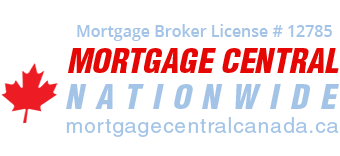Understanding HELOCs – The Pros and Cons of Home Equity Line of Credit
Understanding what a HELOC is can be simplified, which is what we aimed for in this write up. A HELOC stands for Home Equity Line of Credit, a type of second mortgage that allows homeowners to access as much as 80% of their home equity in the form of revolving credit.
Most people apply for a HELOC for funding home repairs or home renovations so that they can further increase the value of their home. This is a smart move as long as you’re sure that you have the capacity to pay because failure to do so can result to you losing your home.
How Does A HELOC Work?
The easiest way to remember how a HELOC works is to think of it as a credit card backed by your home’s equity. With a HELOC, you will be given a spending/borrowing limit and you can borrow against it as often as needed, repay, and borrow again. This means that a HELOC can give you flexibility and freedom in ways that other home loans cannot.
A key information to remember about HELOCs is that they have variable interest rates. The lender will start with an index rare that can go up and down based on many factors. Factors include your credit profile, local economy, etc.
What a HELOC Means for Your Credit Score
HELOCs are often treated by financial institutions as installment loans rather than revolving lines of credit. This means that borrowing your entire HELOC credit limit can impact your credit score the same way that maxing out your credit card can. This also means that you’ll have a temporarily lower credit score once your HELOC is approved.
Pros and Cons of HELOCs
Even in view of the above, there are still many reasons to get a HELOC. Your HELOC might even be tax-deductible if used in specific ways such as improving your home. Other reasons to get a HELOC include needing a new car, having to fund a wedding, consolidating loans, and paying for college.
Some people may be better off avoiding a HELOC if having it can make them lose their home. Examples are if you are unemployed or not sure if you can pay as failure to pay can result in you losing your home. For situations like this, looking into other types of loans could be the better option. Other reasons not to get a HELOC are if the fees cannot justify the amount you want to borrow or if you are on a very tight budget as of now and additional expenses will just mean more debt.
Home Equity Loan VS. HELOC, Which is Better?
Whether a Home Equity Loan or a HELOC is better for you depends on a lot of factors. One thing of huge significance that you must look into is how much do you want to borrow and need asap. A Home Equity Loan will give you a lump sum that you must pay in installment whereas a HELOC will allow you to reborrow even though you’re still repaying what you initially borrowed. Both are smart ways to tap home equity but one comes with a fixed interest rate (and fixed loan) while the other comes with variable payments and interest (and can be used like a credit card). Talk to us to discuss which one could be the smarter choice for your financial needs!
Getting a Home Equity Loan or a Line of Credit is bound to come with challenges. This is why it pays to arm yourself with knowledge and contact mortgage professionals with a proven track record to help you with your HELOC application. Contact us today if you have questions!

